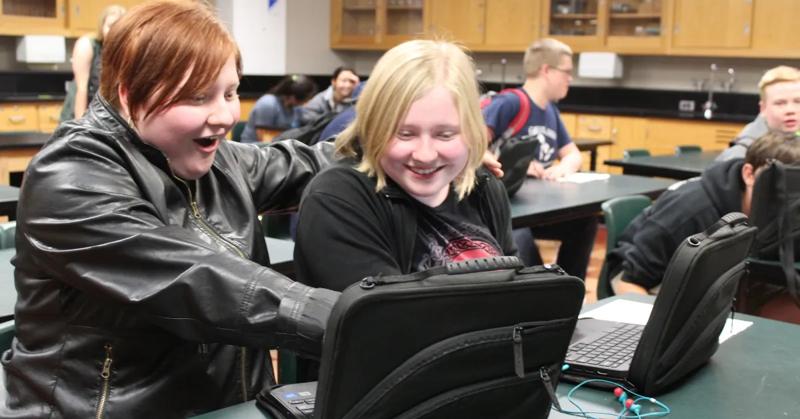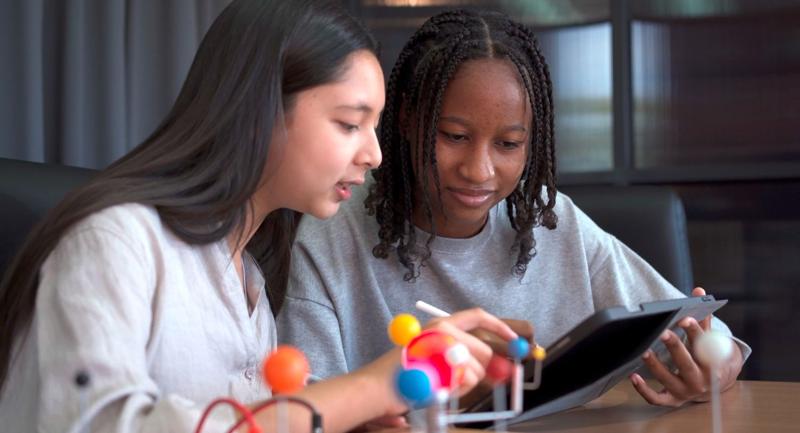By now everyone is probably aware that we are living in a very different America than previous generations. The predominant industrial economy, prevalent after World War II, no longer exists. In 1965, manufacturing accounted for 53 percent of the economy. By 1988 it only accounted for 39 percent, and in 2004, it accounted for just 9 percent, which is roughly the same percentage as now, even with an increase in job numbers. In 2013, the manufacturing sector employed roughly 12 million workers, or six million jobs less than in 1980. While some manufacturing jobs are returning to the US, automation and losses to other countries are expected to continue to reduce these numbers.
In an industrial economy, people were prepared primarily for jobs with the same daily routines. Without social media and the incredible variety of news and entertainment today, people needed basic reading and writing skills, along with basic background knowledge and understanding deemed necessary for citizenship. Few went beyond a high school education, and many never graduated from high school.
The relentlessly changing American economy, built around new technologies and innovation, deemphasizes industrial work and now emphasizes a new information, technology, and service-based economy. Millions of Americans today no longer work a full-time job: they are “contract” workers, adapting to continuously developing new opportunities and gaining employment through their own pro-active initiative. Many become entrepreneurs, starting their own businesses. Continuing education that is geared to new types of training and upgrading of skills is critical in this fast-paced changing world.
This newly developing, rapidly changing economy requires many workers with a different type of education than in the past. Those who write about the changing economy and worker skills emphasize the need for a new type of worker, one that is prepared for cognitively challenging job requirements, some of which don’t even exist yet. Young people will need a broad knowledge background and an array of new skills in order to prepare to work at jobs that don’t even exist yet. They include the following:
- Broad knowledge base. Understanding of key knowledge and ideas in many fields.
- Flexibility – Can adapt to new situations
- “Learning to learn” skills – Prepared for continuous learning
- Pro-active engagement. Learners are active and engaged in the learning process. They are curious, develop interests and passions, take learning initiatives, conduct research, check information, become pro-active learners.
- Learners are adaptable, flexible, original thinkers.
- Problem Solving. Good at using what they know to figure out how to solve a variety of complex problems that are new to them.
- Work well with others.
- Literacy and good communication skills. Good readers of both fiction and non-fiction material. Good writers and communicate well with others.
- Thoughtfulness, both qualitatively and quantitatively. Have developed a variety of high level, complex thinking skills – sorting, classifying, conceptualizing, comparing and contrasting, interpreting, analyzing, evaluating, putting together arguments, forming opinions with evidence, drawing conclusions from data, and so on.
- “Habits of Mind” Skills and Attitudes – Have “grit”, perseverance, curiosity. Learn from failure. Disciplined, “hard-working”, collaborative.
- Leadership. Demonstrate the ability to take charge, be proactive, plan with others, take initiative, form a positive climate and culture.
These are also many of the same skills that are necessary for engaging in today’s complex democratic society – a broad civic knowledge base; the ability to understand and sort through difficult issues, such as healthcare, International relations, and education; understanding the economic complexity of a modern society and world; pro-actively participating in the life of the community, state and nation. Our children will also need to learn how to become involved in the community and in public service.
My term for an education that promotes and develops these qualities is “deep learning”, well above the more traditional “basic learning” focus of the past. How do we build an educational system around developing this deep learning knowledge base and promoting this deep learning level of skill development? How do we prepare our students for the future of work and citizenship? Rethink what we do? Many are already on the path towards the type of education that will prepare the next generation for both the economy and civics of the future. The next commentary will focus on changes we need to make in order to develop the “deep learning” education necessary to prepare our children for the 21st century world they will live in.
This article is the first of a bi-weekly series primarily focused around basic and deep teaching and learning. There will also be occasional articles around other topics of interest to educators. You can find all the articles around basic and deep teaching and learning by clicking here or on the tag ‘Deep Learning’.
Elliott Seif is a long time educator, teacher, college professor, curriculum director, staff developer, author and Understanding by Design cadre member and ASCD faculty member. He currently writes about and addresses key educational issues, and volunteers his time in the Philadelphia School District. His website can be found at www.era3learning.org.





